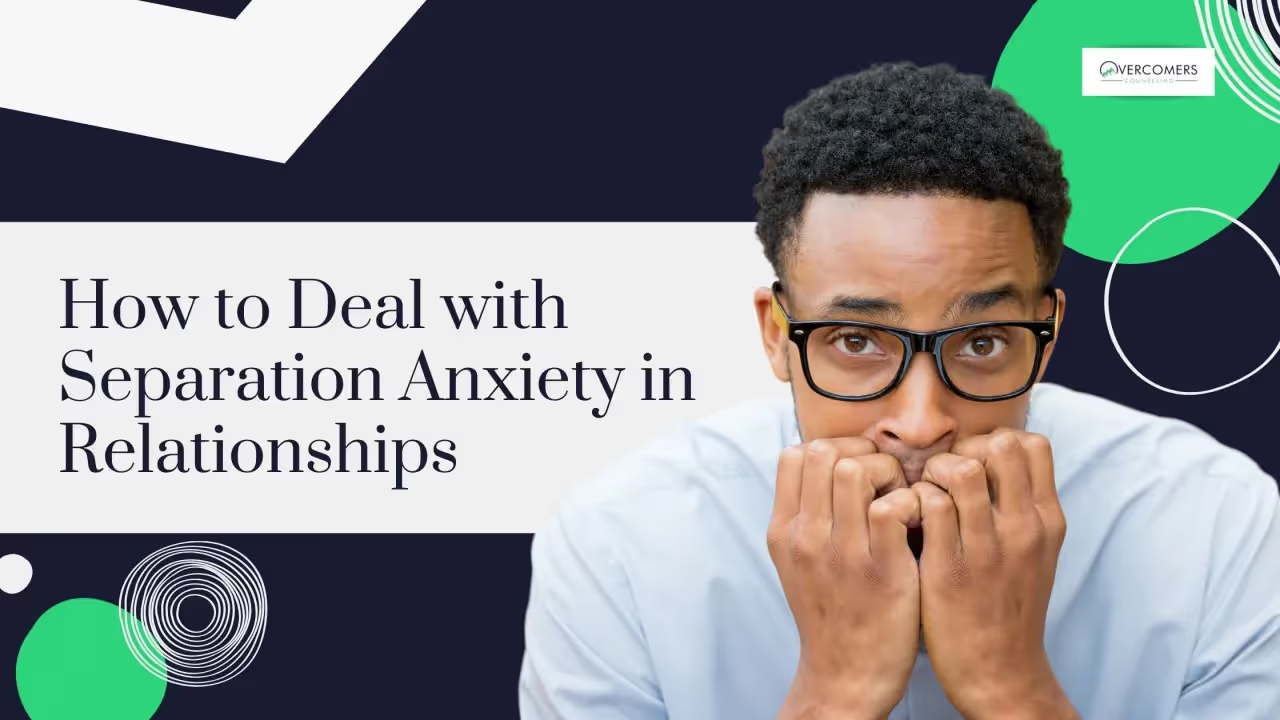If you're in a relationship, chances are you've experienced some form of separation anxiety.Whether it's being apart from your partner for an extended...

If you're in a relationship, chances are you've experienced some form of separation anxiety.
Whether it's being apart from your partner for an extended period or simply missing them when they leave the room, separation anxiety is a common occurrence in many relationships.
While separation anxiety is perfectly normal, it can also be a source of stress and conflict in a relationship.
It may seem like a trivial issue, but separation anxiety in relationships can be a major source of stress and conflict in a relationship.
If you're struggling with how to deal with separation anxiety in your relationship, here are some tips to help you cope.
Separation anxiety is a very real phenomenon that can occur in any relationship - whether you're married, dating, or even just friends.
It can be triggered by anything from a change in routine (like a work trip) to a major life event (like a move).
And while it might seem like a small thing, separation anxiety can have a big impact on your relationship.
If left unchecked, it can lead to feelings of insecurity, jealousy, and even resentment.
If you're struggling with separation anxiety, there are some things you can do to ease your fears and help your relationship thrive.
Try to understand why you're feeling anxious.
Is it because you're worried about your partner cheating?
Or is it because you fear that they'll forget about you while they're away?
Once you know what's causing your anxiety, you can start to address it.
This is an important step in learning how to deal with separation anxiety in a relationship.

If you find yourself feeling excessively anxious when separated from your loved ones, there are some things you can do to help ease your anxiety.
First, try to stay busy and occupied while you are apart.
This will help to take your mind off of your separation and hopefully prevent you from dwelling on your fears.
Second, keep in touch with your partner as much as possible.
Whether it's through text, email, or social media, staying connected will help to ease your anxiety.
Finally, make sure to communicate with your partner about your anxiety.
This will not only help them to understand how you're feeling, but it may also help to come up with a plan for how to deal with your anxiety in the future.

One of the best things you can do if you're struggling with separation anxiety is to talk to your partner about it.
This will help them to understand how you're feeling and why, and it may also help to come up with a plan for how to deal with your anxiety in the future.
Some things you could discuss with your partner include:
By talking to your partner about your anxiety, you can help to ease their fears and concerns as well.
This will ultimately help to strengthen your relationship and make it more resilient to the stresses of separation anxiety.
Being in a long-term relationship can be wonderful, but it also comes with its challenges.
If you're struggling to cope with separation anxiety, there are a few things you can do to maintain a sense of connection despite the distance.
Make sure to keep communication open. Whether you're texting, calling, or video chatting, stay in touch as much as you can.
Also, try to schedule regular "dates" where you can share new experiences, even if you're not in the same place.
Don't forget to show your partner how much you care about them - send a card, flowers, or a small gift to let them know you're thinking of them.
If you find that your separation anxiety is impacting your relationship negatively, it may be time to seek professional help.
A therapist can help you to understand and cope with your anxiety, as well as provide tools and resources for how to deal with separation anxiety in relationships in the future.
This content is not meant to be a substitute for professional medical advice, diagnosis, or treatment.
If you have any concerns or questions about your health, you should always consult with a physician or other healthcare professional.
If you're struggling with learning how to deal with separation anxiety in your relationship, it's important to understand that you're not alone.
Many people experience this type of anxiety, but there are ways to manage it.
By taking the time to understand your needs and how to best deal with the stress of being apart, you can help keep your relationship healthy and strong.
It's important that you feel comfortable discussing personal matters with your therapist in order to open up and get more out of therapy sessions; therefore finding someone who meets certain criteria like experience level, expertise areas, and personality is key when selecting a therapist who can give meaningful feedback about how best handle issues related to anxiety or other mental health concerns.
Addressing anxiety is crucial because it can significantly impact your quality of life and overall well-being. Left untreated, anxiety can lead to more severe mental health issues, relationship problems, and difficulty functioning in daily life.
Other activities which have been found helpful in reducing both immediate feelings of anxiousness and long-term anxieties associated with chronic disorders include yoga, journaling, nature walks, art therapy, volunteering, and other low-stress activities. Additionally, developing a healthy lifestyle incorporating adequate sleep, physical activity, and nutritious meals can help reduce overall stress levels.
Ignoring anxiety can exacerbate symptoms and make it more challenging to manage over time. This can result in a negative impact on your personal, professional, and social life, leading to feelings of isolation and even depression.
To reduce your anxiety, you can practice relaxation techniques such as deep breathing, progressive muscle relaxation, guided imagery, and mindfulness practices. Additionally, regular exercise has been found to be beneficial in managing stress and improving mental health.
The duration of anxiety counseling varies for each individual, depending on the severity of their anxiety and their progress in therapy. Our therapists will regularly assess your progress and adjust your treatment plan as needed.